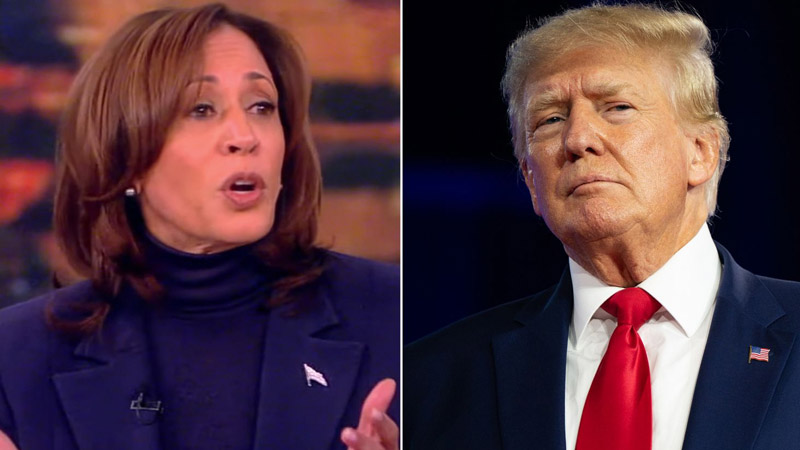North Carolina Called for Trump as Final Push Pays Off in Crucial Swing State

ABC; BRANDON BELL/GETTY IMAGES
In a significant development in the 2024 presidential race, North Carolina has been called for Donald Trump by both The Washington Post and The New York Times. The state, long considered a critical battleground, delivered another win for Trump, who previously secured North Carolina by narrow margins in both the 2016 and 2020 elections.
North Carolina became a prime focus in the final days of the campaign, with both Vice President Kamala Harris and former President Trump directing their resources and attention toward winning its 16 Electoral College votes. Polling throughout the election cycle indicated a close contest, prompting both candidates to make a final push to tip the scales in their favor.
Harris saw North Carolina as a potential turning point, hoping that a victory there would not only boost her standing but also set a tone that could make it harder for Trump to challenge the legitimacy of other state results. With the prospect of delayed vote counts in other battlegrounds, Harris and her campaign strategists recognized that an early win in North Carolina could help preempt any claims of election fraud or manipulation that Trump might raise if he fell behind as the night wore on.
In the closing days of the campaign, Harris intensified her efforts in the state, holding rallies and meeting with key demographic groups to maximize voter turnout. She emphasized her commitment to issues like healthcare, economic opportunity, and voting rights—topics aimed at appealing to North Carolina’s diverse voter base. Her campaign team believed that flipping North Carolina, a traditionally Republican-leaning state, could provide a strong momentum shift in the final stretch.

Meanwhile, Trump took his own steps to ensure North Carolina stayed in his column. The former president held multiple campaign events across the state in the week leading up to Election Day, energizing his base and reinforcing his commitment to the state’s voters. At each stop, he delivered speeches underscoring his positions on economic growth, national security, and what he termed “law and order”—all topics he believes resonate strongly with North Carolina’s electorate.
Trump’s final campaign events also included calls to maintain faith in the electoral process, with his team preemptively dismissing potential challenges to the legitimacy of his anticipated win in North Carolina. His emphasis on securing this key state reflects not only its value in the Electoral College count but also its symbolic importance as a validation of his support among Southern and swing-state voters.
Despite Harris’s extensive campaign efforts in the state, Trump’s established support and strong turnout ultimately delivered North Carolina in his favor. The win solidifies his hold on a state that has traditionally leaned Republican but was closely contested this cycle. With North Carolina now officially called, Trump edges closer to the 270 Electoral College votes required to secure the presidency, placing even greater importance on the remaining battleground states.
The outcome in North Carolina underscores the importance of final campaign efforts in swing states, where both candidates deployed extensive resources and personal appearances to sway undecided voters. For Harris, the loss represents a setback in her path to the White House, while for Trump, North Carolina’s outcome is a significant victory that boosts his re-election hopes as votes continue to be tallied across the nation.


